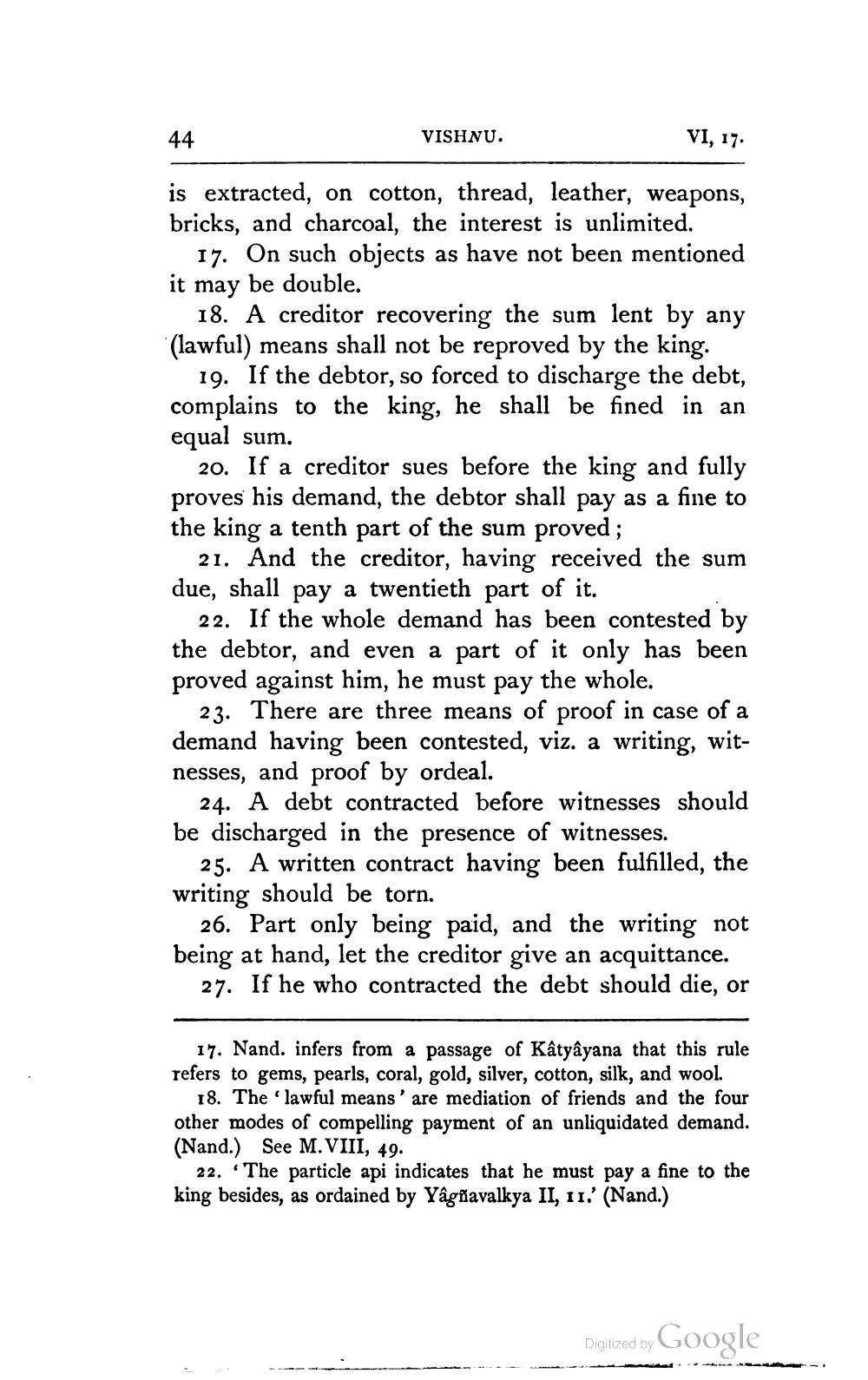________________
44
VISHNU.
VI, 17.
is extracted, on cotton, thread, leather, weapons, bricks, and charcoal, the interest is unlimited.
17. On such objects as have not been mentioned it may be double.
18. A creditor recovering the sum lent by any (lawful) means shall not be reproved by the king.
19. If the debtor, so forced to discharge the debt, complains to the king, he shall be fined in an equal sum.
20. If a creditor sues before the king and fully proves his demand, the debtor shall pay as a fine to the king a tenth part of the sum proved ;
21. And the creditor, having received the sum due, shall pay a twentieth part of it.
22. If the whole demand has been contested by the debtor, and even a part of it only has been proved against him, he must pay the whole.
23. There are three means of proof in case of a demand having been contested, viz. a writing, witnesses, and proof by ordeal.
24. A debt contracted before witnesses should be discharged in the presence of witnesses.
25. A written contract having been fulfilled, the writing should be torn.
26. Part only being paid, and the writing not being at hand, let the creditor give an acquittance.
27. If he who contracted the debt should die, or
17. Nand. infers from a passage of Kâtyâyana that this rule refers to gems, pearls, coral, gold, silver, cotton, silk, and wool.
18. The lawful means' are mediation of friends and the four other modes of compelling payment of an unliquidated demand. (Nand.) See M.VIII, 49.
22. The particle api indicates that he must pay a fine to the king besides, as ordained by Yâgñavalkya II, 11.' (Nand.)
Digitized by Google
.
..
.




